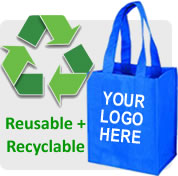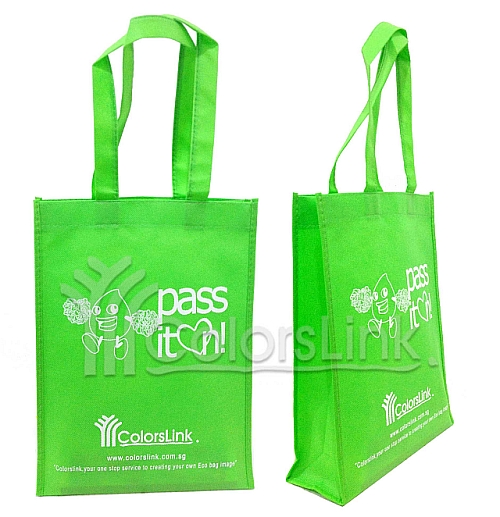
Colorslink Trading
No. 3 South Buona Vista Rd,
Viva Vista #01-32
Singapore 118136.
 +65-6264 4559
+65-6264 4559 +65-9789 7636
+65-9789 7636Latest News
Charity Works
Oct 17, 2012
![]() Charity Works!
Charity Works! ![]()
Colorslink has participate in some charity events! We have supply and contributed bags to the NTU Redcross Blood Donation Drive - Vibrant Blood 2012. Also, donated our non-woven bags to the lovely children at Cambodia. We are glad that we are given the opportunity to lend a helping hand :)
Siam Reap, July 2015

Cambodia, 2013

NTU Redcross Blood Donation Drive, 2012


Cambodia Charity Event, 2012


![]()
![]()
![]()
Eco-friendly Bags: Effective Promotion and Preservation
Jan 27, 2011![]() Eco-friendly Bags: Effective Promotion and Preservation
Eco-friendly Bags: Effective Promotion and Preservation ![]()
British fashion designer Anya Hindmarch's ¡°I'm NOT A Plastic bag¡± eco-friendly tote may have heralded the advent of green bags in 2007, but your reusable bag doesn't have to come off the drawing board of an award-winning designer to win the hearts of your target market.
Each reusable bag represents the best of probably all the worlds there are. Here is why:
Reducing Pollution
An estimated one trillion plastic bags are used worldwide each year. Though these bags can be recycled or reused, more than 97% are dumped, finding their way to the oceans where they strangle marine life or releasing toxic chemicals into the soil of landfills.
Even if you discount that, the barrels of oil that go into plastic bag production number by the hundreds of millions each year. This is fast depleting the Earth's subterranean stock of fossil fuels, which are a non-renewable resource.


Reusable bags help to curb the problem by being, well, reusable. They serve the same function as plastic shopping bags, except that they are durable enough to be used over and over again. Using these bags drastically decreases the demand for plastic bags and, as the laws of economics state, cut their supply, hence saving the preposterous amounts of energy used to produce and dispose of plastic bags.
Some reusable bags even take the eco-friendliness to another level: by using recycled plastics like Recycled Polyethylene terephthalate (RPET) from recycled plastic bottles as raw materials for their production. In other words, they turn waste into waste-reducing products.
Powerful Marketing Medium
Apart from the noble cause of saving the environment, these eco-friendly bags also serve another, more immediate purpose.
They're an excellent marketing medium.
Cheap and quick to produce in bulk, these bags are ideal for marketeers, who can choose from a wide range of colours and materials to find a bag that best suits their needs. Once you've decided on one, you can emblazon your brand images or marketing messages on these bags and distribute them among your target audience.
This mobile marketing medium is especially effective through direct association: a member of your target audience is seen carrying the bag with your brand name, and there's an immediate direct visual perception that leads to association between your target audience and your brand. It's even more effective when a targeted recipient of your bag brings it along to areas where members of your targeted group congregate.
While other advertising campaigns cost millions and run for limited amounts of time in the media, the lifespan of the durable, hardy bag is the lifespan of your campaign. As long as it can still be used, your brand will continue to get the exposure it needs.
At the end of the day, your target audience literally gets to take home the brand and brand experience that's contained within every reusable bag you give out. By keeping and using the bag, they've also been given a role the green movement and are now personally involved in fighting pollution; a gift that no other advertising means can provide.
![]()
![]()
![]()
A step into a better future
Jan 3, 2011![]() A step into a better future
A step into a better future![]()
As the earth is facing triple threats in form of inevitable natural disasters, the only way how we can save our planet from being fully destroyed is recycling.
How many times have we heard the word ¡°recycle¡± being mentioned in news, articles, TV shows, or in daily conversation, say within a day? But, ask ourselves, did I recycle?
If the answer is yes then congratulations because you are helping to make this world a safer place to live. Not just for you and your family, but for other living things too.



Before we proceed further, we would like to ask you another simple question: Do you know what the meaning of recycling is and do you recycle because you think it is a necessity or because you¡¯re just following the trend? At this point, we are sure less than a few will say yes and choose the former (recycle as a necessity) as their answer.
Generally speaking, for years, recycling has been long perceived as dumping bottles, plastic containers and old newspaper according to the coloured bins provided, contents from these bins are then emptied and sent to recycling plants to be crushed into pieces, thoroughly processed and reshaped into either recycle paper sheets, new bottles or plastic containers for mass consumption. In a general sense, that is indeed, true.
However, recycling, in a boarder sense can be best defined as processing used material (waste) into new products to prevent waste of potentially useful material, reduce energy usage, reduce air pollution and water pollution by reducing the need for ¡°conventional¡± waste disposal, and lower greenhouse gas emissions as compare to virgin production.
So Why Do We Need To Recycle?
The earth today is facing a series natural hazards and man made threats which has serious economic consequences and cause harm to our ecosystem. Should we fail to act responsibly to minimize the green house gas emission from industrialization, we shall see more serious problems such as global warming effects. Global warming is the increase in earth¡¯s temperature and the desalination of our oceans. Rapid increased temperature and rising ocean, means we will see frequent and stronger hurricanes in parts of the world, while droughts and heatwaves affect other parts such as Africa and Europe. The thinning of the Ozone layer reduces the absorption of harmful ultraviolet (UV) rays increasing the risk of skin cancer in humans due to harmful UV exposure.

Disposal of non biodegradable waste makes our beautiful land look dirty, contaminate our fresh water supplies affecting the cleanliness of our drinking water and the contamination of our air makes us breath in polluted dust destroying our respiratory system.
Global warming and pollution has in recent years added to the use of excessive water. Failure to play our part in saving the environment through recycling can add to water shortage. This means we will little water flowing downstream destroying our fish supplies such as salmon. Agriculture consequences due to drought will mean shortage of food supplies for their people.
Therefore, by recycling, it will help us and the country to save money, energy and most importantly, our precious ecosystem.
Like what we always say, ¡°home is what all the good practice and things start¡±. So, why don¡¯t we start implementing recycling culture as part of our family culture today?
Working Together For A Better Future!
Tip To Start:
 Find a convenient place to collect recyclable items. Most things come from the kitchen, making it a good spot to set up a recycling centre within your household.
Find a convenient place to collect recyclable items. Most things come from the kitchen, making it a good spot to set up a recycling centre within your household.
 Assign containers for glass, plastic and aluminum, to avoid mess.
Assign containers for glass, plastic and aluminum, to avoid mess.
 Take leftover plastic bags back to grocery stores where they are collected and reused to make plastic lumber.
Take leftover plastic bags back to grocery stores where they are collected and reused to make plastic lumber.
 When we are shopping, bring our own recyclable, non-woven shopping bag or basket with you instead of using plastic bags provided by the grocers.
When we are shopping, bring our own recyclable, non-woven shopping bag or basket with you instead of using plastic bags provided by the grocers.
 Check the bottom of plastic items to identify what type of plastic they are. If the type is not recycled, consider way to reuse the container.
Check the bottom of plastic items to identify what type of plastic they are. If the type is not recycled, consider way to reuse the container.
 Recycle junk mail or reuse it as scratch paper. Newspaper, magazines, and white paper can all be recycled as long as paper is clean and dry.
Recycle junk mail or reuse it as scratch paper. Newspaper, magazines, and white paper can all be recycled as long as paper is clean and dry.
 If we have old but useable electronic devices such as computers, TV, or DVD players, donate them to any charity home or learning centre for the disabled so that the items can be put to good use instead of ending up in a junkyard.
If we have old but useable electronic devices such as computers, TV, or DVD players, donate them to any charity home or learning centre for the disabled so that the items can be put to good use instead of ending up in a junkyard.
 Recycle worn-out rechargeable batteries like those used in cell phone, computer, or power tools. Try goggling for a drop- off location.
Recycle worn-out rechargeable batteries like those used in cell phone, computer, or power tools. Try goggling for a drop- off location.
![]()
![]()
![]()

